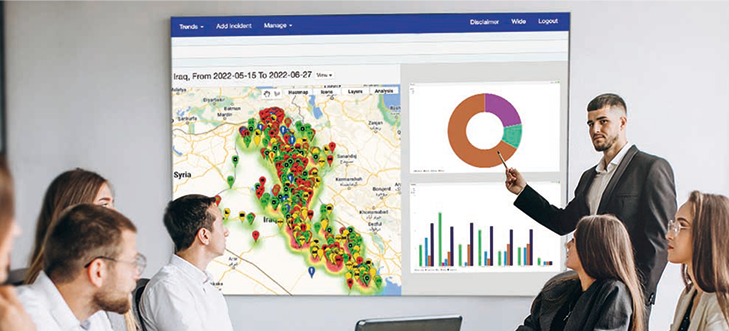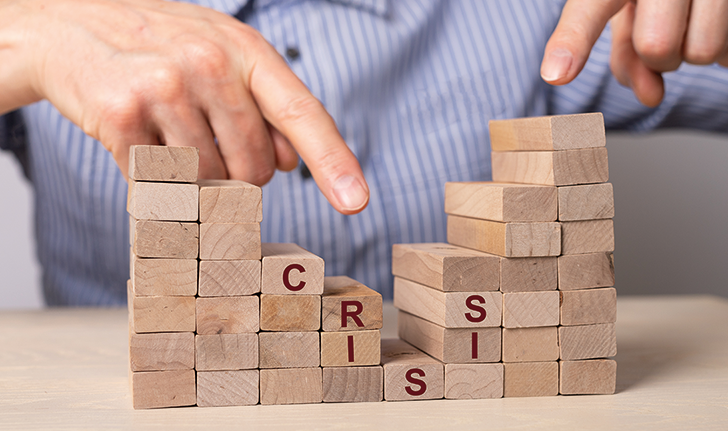Enterprises today face an increasingly competitive market and a host of disruptive crises that challenge current business models and methodologies.
What is certain is that we live in uncertain times. Geopolitical tensions, difficulties in the supply chain, pressures for climate action and global wealth inequalities all have their impact on business operations. Combined with unprecedented change in technology and our increasingly interconnected and interdependent world, the effects of such issues are incalculable.
These factors, combined with the assumed risk and volatility of economics, pose a series of operational and financial risks to businesses. Survival is more challenging than ever, and businesses are being forced to adopt detailed business resilience strategies to navigate the storm and stay afloat.
This article will discuss the importance of businesses’ resilience, the correlation between continuity and resilience, steps to take to strengthen resilience in your organization and finally the best tools for the job
What is enterprise resilience?
Resilience is the ability of a system, organization, or person to withstand stress and recover afterward. It’s the ability to bounce back after a crisis and continue on as normal.
In business, enterprise resilience is the ability to avoid the abnormal from becoming an emergency or a crisis and if it does escalate, then to be able to maintain business continuity, implement disaster recovery, recover from the effects, and regroup physical security.
Resilience is not just about a reactionary response to crises when they occur. The best business resilience strategies mitigate the chances of a crisis developing in the first place, or, when it’s unavoidable, steer the business away from the eye of the storm.
The Correlation between Continuity and Resilience
Fundamentally, enterprise resilience is about preserving business continuity, ensuring business operations can be maintained. Continuity in times of crisis is a priority as it is these operations which ultimately make the business viable and profitable. Continuity is the difference between survival and a sinking ship.

There is, then, a positive correlation between continuity and resilience, and having systems in place to preserve continuity is a great start to build enterprise resilience. Making sure business systems are able to withstand changes, forecasting future trends and stress testing using exercises all build systems created for continuity.
Strengthening Resilience
In practice, strengthening resilience can be elusive. What steps can businesses take to strengthen resilience?
Firstly, it’s easy to get lost in the day to day and immediate challenges of business. The problem is that busy people lose their peripheral vision, and that’s where the crises start to form. By blinding ourselves to the broader picture, our resilience starts to crack.
Strengthen resilience by remaining educated and staying informed. Having the correct information at the right time is guaranteed to strengthen continuity.
Secondly, it’s important to acknowledge that not every scenario can be predicted and role-played. Who foresaw the extent of the pandemic disruption on traditional workplaces, for example? If the specifics cannot be foreseen, that doesn’t mean that similarities cannot be found with previous scenarios.
Using a scenario-based approach to assessing risk can be helpful to convert abstract ideas into concrete chains of events. Considering, with a diverse group of voices, the “what ifs?” is fundamental to business resilience and to create systems to ensure continuity and strengthen business resilience.
It’s important to have a diverse playbook of situations and responses to ensure that whatever the situation, enterprises know how to respond in kind. This strengthens resilience as documented processes are easy to find, test and rely on when the time comes.
Finally, resilience can be strengthened by ensuring relevant local knowledge and accurate data is in the hands of your decision makers. In our volatile political climate, today’s developments require responses today – yesterday’s news just won’t cut it. Your board needs up to date information to anticipate what tomorrow might look like.
Intelyse and Enterprise Resilience
Fortunately, enterprises need not be alone in developing resilience and strengthening enterprise continuity. Intelyse helps organizations to create resilient structures and processes to better prepare for emergencies and mitigate the risk of crises. We empower personnel through training and mentoring to build durable processes with a purpose, not just another check-box, and our services help businesses last.

Our Business Continuity Services scale from individual consultation sessions and a whole bank of scenario-based risk management exercises, to comprehensive resilience planning and hands-on simulations. We know every enterprise is different, so our solutions are tailored to individual needs. Following our methodology of scoping and gap analysis, and our piloting, testing and rollout methodologies, your business will be prepared with a business resilience design to rely on.
With our resilience products, exceptional training is par for the course. We never deliver just another tick-box exercise, but work with your team to identify strengths and weaknesses and deliver continuity and preparedness training that serves a purpose and strengthens enterprise resilience.
Plus, with our ISO compliance testing, audit preparation services and annual assessments, our solution is designed to last and adapt to whatever new challenges your business faces.
Conclusion
It’s no secret that enterprise longevity is built on business resilience and crisis mitigation strategies. In today’s economic, geopolitical and environmental climate, risk mitigation and enterprise resilience is more important than it ever has been.
For your business to survive, it isn’t enough to just have plans in place. Rather, successful businesses need a comprehensive and strong business continuity strategy bought into and understood by all stakeholders, which includes risk management exercises, a well understood playbook and access to accurate data round the clock.
This is a mammoth task when businesses do it alone, mainly because it is rare for resilience to be anyone’s day job so it constantly gets pushed down the ‘to do’ list. With a business resilience partner, such as Intelyse, our partnership builds continuity that lasts.
Ready to strengthen enterprise resilience in your organization? Reach out to our friendly team, info@intelyse.com, to discuss how you can build a resilient structure that is prepared for emergencies and can mitigate the impact of a crisis.

